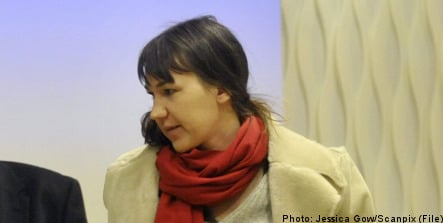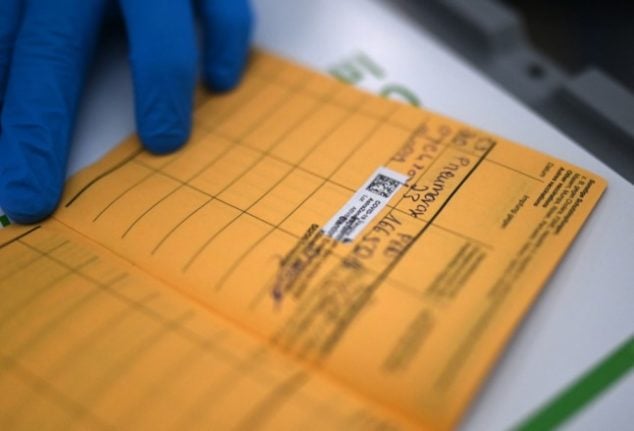Schürrer wants the Swedish Supreme Court (Högsta domstolen) to overturn a ruling by the Court of Appeal (Hovrätten) upholding her life sentence for murder.
Her lawyer, Per-Ingvar Ekblad, submitted the appeal in person to the Svea Court of Appeal on Friday afternoon.
Ekblad argues, as grounds for seeking leave to appeal from the Supreme Court, that there are no clear legal grounds for the conviction.
He argues that the evidence presented does not meet legal requirements for a conviction and continues that there is scope to cast doubt on the interpretation of the principle of “beyond reasonable doubt”.
Ekblad bases the appeal on three main points. Aside for the interpretation of “beyond reasonable doubt” he argues that the Svea Court of Appeal has erred in its valuation of the circumstantial evidence presented in the case.
In his appeal to the Svea Court of Appeal Ekblad has argued that the testimony from the mother or the murdered children, Emma Jangestig, has not been evaluated correctly and is not close to the standards required by law.
Christine Schürrer was convicted by Västmanland District Court of murdering three-year-old Max and his one-year-old sister Saga, and then attempting to kill 23-year-old Emma Jangestig, at the family’s home in Arboga on the evening of March 17th 2008.
Schürrer had been in a relationship with Jangestig’s then boyfriend, Torgny Hellgren, and according to prosecutors Frieda Gummesson and Johan Fahlander, her obsession with her ex-boyfriend served as the motive for the killings.
Investigators were never able to tie Schürrer to the crime scene with physical evidence. Instead, prosecutors based their case on strong circumstantial evidence.
Despite the lack of fingerprints or DNA evidence, the court ruled that there was “overall convincing evidence” against Schürrer.
In addition to receiving a lifetime prison sentence, Schürrer must also pay 457,892 ($64,600) kronor in compensation to Jangestig, as well as a total of 131,329 kronor to other plaintiffs in the case.



 Please whitelist us to continue reading.
Please whitelist us to continue reading.